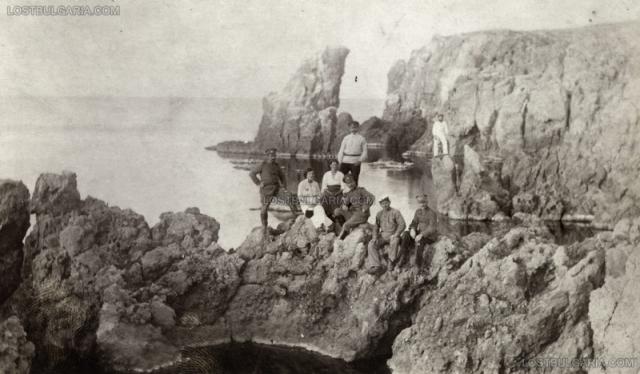The photos used are from the website of lostbulgaria.com
Polina Spartyanova
On this day 100 years ago, Austria-Hungary declared war on Serbia, and invaded its territory. Thus began the First World War, and gradually it included Germany, France and the UK.
The following year, Bulgaria joined the war on the side of the Triple Alliance (the Entente), and after that the other countries of the Balkan Peninsula were challenged to take part in military action. Today, 100 years after the First World War, we are meeting with Lilia Krivorova, a Chief Expert at the National Museum of Military History in Sofia to learn more about the consequences for Bulgaria and the region of this military conflict.
One hundred years after the beginning of World War I, what is its global significance from a modern perspective?
The First World War centenary is a good occasion to assess its significance related primarily to the effects of this greatest conflict in previous history. The war ended with important military, economic and political results affecting the coming decades. On the battlefields, 10 million people died, and another 20 million remained crippled.

The war reshaped Europe's borders to the detriment of the defeated countries. The Austrian-Hungarian Empire descended from the political scene together with the Second German Reich. Bulgaria was not spared either - it lost some territories.
A few of the colonies were redistributed too. Sanctions were imposed by the victors in order to establish lasting peace, which, however, was a prerequisite for future conflicts.
The search for new ways to solve the political crisis led to the emergence of Fascism in Germany and Bolshevism in Russia, and we are all very familiar with the tragic results.
Both winners and losers faced economic crisis, which lasted many years. The situation was extremely difficult for the states that lost the war as they had to pay huge reparations. Only the U.S. economy remained intact. The USA was the only creditor, and after the war the world gold reserves were flooding to them.
As a result of the war, in January 1919, an international organisation was founded - the League of Nations, which proclaimed the achievement of world peace, but actually wanted to preserve the Versailles system imposed by the victors.

How important for Bulgaria is this anniversary today?
The anniversary of the First World War was the occasion for reviewing and overhauling all the problems associated with the Bulgarian participation in it. This involved the reasons for joining the Central Powers, the participation of the Bulgarian army in the Coalition operations on the Balkan stage of war (quantity of troops, set goals and objectives, results achieved regarding the art of war), economic problems during and after the war and its impact on the development of public relations.
The right conclusions will not only illuminate the past, but they will be a prerequisite for not repeating mistakes made at the time.
What are the historical mistakes Bulgaria made 100 years ago?
The main mistake of the Bulgarian politicians was the decision that Bulgaria was to join the Central Powers. Bulgaria perceived involvement in the war as an opportunity for the national ideal of uniting all the lands inhabited by Bulgarians.
This objective had not been achieved in previous Balkan wars, so the government was willing to join the coalition guaranteeing more benefits for Bulgaria at the end of the war.
The Entente states could not formulate a unified policy for Sofia, and their proposals were too conditional. The Central Powers promised Bulgaria the whole Vardar Macedonia, and all the lands seized from Bulgaria due to the Bucharest Peace Treaty in 1913.
The possibility of compensation in the Moravian region was underlined, with the cities of Pirot, Niš and Vranje included. The promises sounded good, but certain conditions had to be met - the Central Powers had to win first. In the summer of 1915, the political and military leaders of the country were not able to assess the outcome of the war.
The Bulgarian statesmen ignored the most important factor tested and proven by practice and time. Unification of people, including the Bulgarians, is likely to be achieved only gradually, through a methodical and persistent approach, in different stages and with the efforts of several generations of Bulgarians.

Certain weaknesses were allowed in shaping the economic, military and technical terms in the documents for joining the coalition. The Military Convention governed only the relations during the war with Serbia, therefore the Bulgarian army was later left to fight alone on the Southern (Thessaloniki) front.
Moreover, Bulgaria continued to participate in the war even after achieving its political objectives. The Bulgarian army spent three years on the Southern Front, holding 35 covenant divisions, and practically defending foreign interests.
What was Bulgaria’s role in the war?
Bulgaria's participation in the First World War can be separated into two major periods: of manoeuvre – from Bulgaria’s involvement in the war starting on 14 October 1915 until the end of 1916; and of position - from the beginning of 1917 until the end of the war.